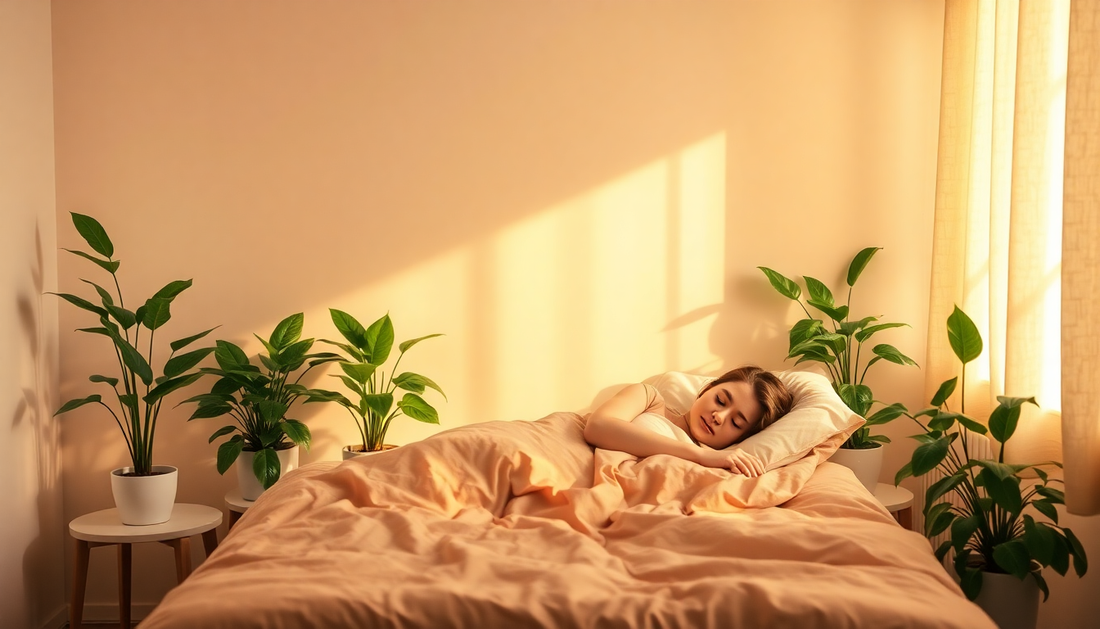
5 Indoor Plants That Can Help You Sleep Better
Getting a good night's sleep is essential for our overall health and well-being. However, with the stresses of modern life, many people struggle to get the recommended 7-9 hours of sleep per night. Fortunately, there are some simple solutions that can help, and they come in the form of certain indoor plants.
Research has shown that certain plants can help improve air quality, reduce stress and anxiety, and even promote better sleep. By strategically placing these plants in your bedroom, you can create a more calming and restorative environment that can help you drift off to sleep more easily and stay asleep throughout the night.
In this blog post, we'll explore five of the best indoor plants for better sleep, and provide tips on how to care for them to maximize their sleep-enhancing benefits.
1. Lavender (Lavandula)
Lavender is perhaps the most well-known plant for its calming and sleep-promoting properties. The soothing scent of lavender has been shown to reduce anxiety, lower blood pressure, and promote relaxation. When placed in the bedroom, the aroma of lavender can help ease the mind and body, making it easier to fall asleep.
To get the most out of lavender, consider placing a potted plant on your nightstand or using a few drops of lavender essential oil in a diffuser. You can also try adding a few sprigs of fresh lavender to your pillow or linen spray. Just be sure to choose a variety that is suitable for indoor growing, such as English lavender (Lavandula angustifolia).
2. Jasmine (Jasminum)
Like lavender, jasmine is known for its calming and sleep-enhancing properties. Studies have shown that the scent of jasmine can reduce anxiety, improve mood, and promote better sleep quality. Jasmine is also believed to have a positive effect on the parasympathetic nervous system, which is responsible for the body's "rest and digest" functions.
To incorporate jasmine into your sleep routine, consider placing a potted plant near your bed or using a jasmine-scented essential oil in a diffuser. You can also try adding a few drops of jasmine oil to a warm bath before bedtime.
3. Chamomile (Matricaria recutita)
Chamomile is a well-known herb that has been used for centuries to promote relaxation and improve sleep. The active compounds in chamomile, such as apigenin, have been shown to bind to certain receptors in the brain that may promote sleepiness and reduce anxiety.
To harness the sleep-enhancing benefits of chamomile, consider growing a small potted plant in your bedroom or using dried chamomile flowers to make a soothing tea before bed. You can also find chamomile essential oil and use it in a diffuser or add a few drops to your pillow.
4. Snake Plant (Sansevieria trifasciata)
While not as well-known for its sleep-promoting properties as some other plants, the snake plant is a great choice for the bedroom due to its air-purifying abilities. Snake plants are known to release oxygen at night, which can help improve air quality and promote better sleep.
In addition, snake plants are relatively low-maintenance and can thrive in a variety of lighting conditions, making them an easy choice for the bedroom. Just be sure to place the plant in a spot where it can receive enough light during the day.
5. Aloe Vera (Aloe barbadensis)
Aloe vera is another plant that can help improve air quality and promote better sleep. Like the snake plant, aloe vera releases oxygen at night, which can help create a more calming and restorative environment in the bedroom.
Aloe vera is also known for its soothing and healing properties, which can be beneficial for those who experience skin irritation or inflammation that may interfere with sleep. Consider placing a potted aloe vera plant on your nightstand or windowsill to take advantage of its sleep-enhancing benefits.
Conclusion
By incorporating these five sleep-enhancing indoor plants into your bedroom, you can create a more calming and restorative environment that can help you get the quality sleep you need. Remember to choose plants that are suitable for your specific lighting conditions and care for them properly to ensure they continue to thrive and provide their sleep-promoting benefits.
In addition to these plants, there are other lifestyle factors that can also impact sleep, such as establishing a consistent sleep schedule, limiting screen time before bed, and practicing relaxation techniques. By combining the use of sleep-enhancing plants with other healthy sleep habits, you can improve your overall sleep quality and wake up feeling more rested and refreshed.
So why not give these plants a try and see how they can help you sleep better? Your body and mind will thank you.







No comments